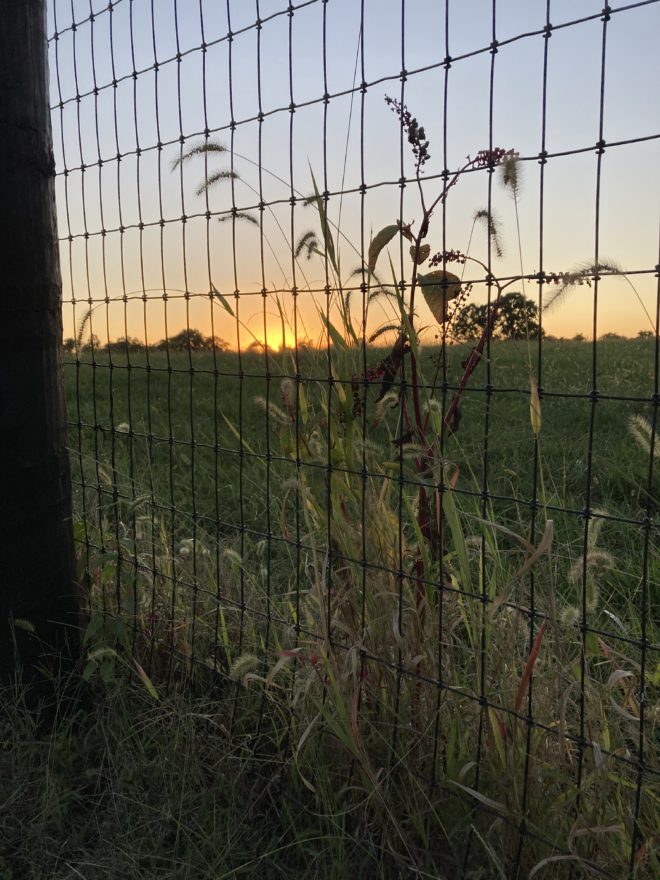When I was a child, my usual perch come Easter, Thanksgiving, Christmas and the Annual Rolex Three-Day Event was the fencepost just to the right of the cattleguard.
You see, we lived way out in the boonies. Some people would call it the middle of nowhere; however, home is anything but nowhere. It is somewhere. And my people came to us. Uncle Rob and his family drove in from Florida. Uncle Danny and Aunt Kim drove in from South Carolina. Uncle Grant and Uncle Will and their families drove in from Lexington, unless you count the years Uncle Grant lived on his five acres on the back of the farm.
At any rate, as the seventies bled into the eighties, living way out in the country was both a blessing and a curse. We lived five miles from a tiny one-stop-sign town called North Middletown. North Middletown boasted an IGA, an ice cream hangout called The Hut, and my elementary school. We were nine-point-one miles from the CSX tracks of Paris to our west. Winchester was to our east, but it wasn’t even on my radar when I was a kid. Lexington, to the south, was the place where my Daddy was swallowed up for the days to work.
So you see, home was sort of in the middle between other places. Home was the place where others came to us, thus my perch on the fencepost just to the right of the cattleguard.
We didn’t have cell phones and GPS. We lacked the ability to share our ETAs. We only knew how long it took to arrive at a certain point because swinging from one family branch to another family branch was such a rare and monumental thing we couldn’t help but know how the time spanned the distance between us.
I knew the general time that I needed to perch. To wait. To watch. If my people came in the day, the glint of reflected sun off windshields elated me. If my people came in the night, the sweep of headlights as they turned into the farm drive was a comfort and a relief. They’d drive real slow-like on the gravel, hang out the windows, honk and wave, on their way past the little pond, up the slight wind of road up to Grandmother and Grandfather Robinson’s house.
Somehow, I had the idea that if I neglected to wait and watch, there was a strong possibility they wouldn’t make it.
Everyone needs to have someone to watch for them.
I didn’t realize I was still watching for the ones I love until a few weeks back when I met a writer friend for an impromptu write-in at a local bookstore coffee shop.
I saw a girl who, from the back, looked like my adult, out-on-her-own, daughter. She was dressed in black yoga pants, tennis shoes, a slightly wrinkled T-shirt. Down her back, a single black braid.
My stomach lurched.
My eyes filled.
My heart willed her to turn around, just so I could see if it was really her.
Then my heart willed her to stay as she was, to not see me; to not remind me how long it had been since she’d told me she wasn’t talking to me.
Sixty-one days ago, as of today. She said she’d give the no contact approach a year, maybe two. I might only have 304 days left.
The girl in the bookstore headed toward another section of shelves. When I caught and held her profile secure in my vision, I found she wasn’t my daughter after all.
Apparently, estrangement is a trend these days. My belief system clashes with her belief system. In these strange days, the differences are grounds for no contact.
But I know of another trend.
It’s the trend of a mother who doesn’t stop looking toward the far country, for a child who might return.
For now, in my heart, I will perch on my fencepost, just to the right of the cattleguard.
I will wait.
I will pray.
I will watch.
I will watch for you.

Praying as you wait, Kristy.
Me, too, Diana. Thank you dear friend.